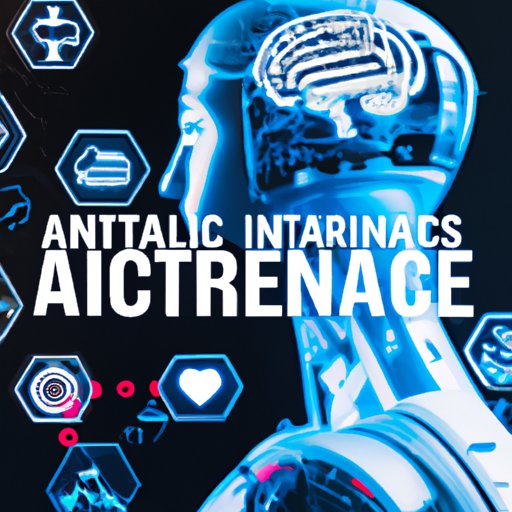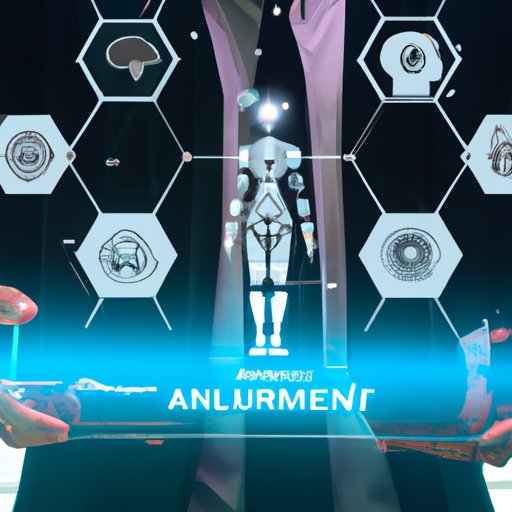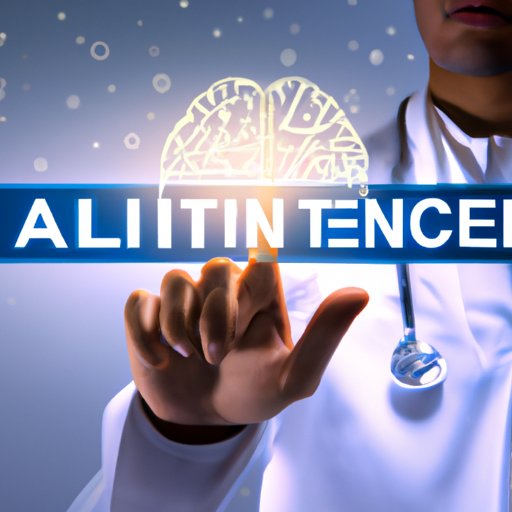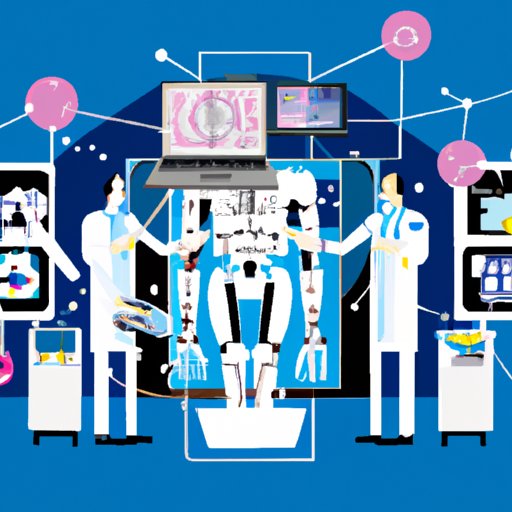Introduction
Artificial intelligence (AI) is a rapidly growing field of technology that has the potential to revolutionize the way healthcare is delivered. AI refers to computer systems that are designed to process data and perform tasks traditionally done by humans. By leveraging AI technologies, healthcare providers can improve patient care, streamline administrative processes, and reduce costs.

Exploring the Benefits of Artificial Intelligence in Healthcare
AI can be used to improve diagnosis and treatment by allowing healthcare providers to quickly analyze large amounts of data. AI-based systems can identify patterns and correlations, which can then be used to provide more accurate diagnoses. For example, an AI system could help detect cancer at an earlier stage than traditional methods. In addition, AI can be used to personalize treatments based on individual patient characteristics and preferences.
AI can also be used to automate administrative tasks such as scheduling appointments, processing insurance claims, and managing patient records. This can save time and money for healthcare providers, freeing up resources to focus on providing better care. AI can also be used to reduce costs by helping to identify areas where healthcare spending can be reduced or streamlined.

Understanding How Artificial Intelligence is Transforming Healthcare
AI is being used to automate medical tasks such as drug dosage calculations, lab test results interpretation, and medical record keeping. AI can also be used to analyze medical imaging such as CT scans and MRIs, which can allow for earlier detection of diseases and conditions. AI can also be used to analyze large datasets to identify trends in population health and develop predictive models for disease management.
Investigating the Potential Risks of Artificial Intelligence in Healthcare
As with any new technology, there are potential risks associated with AI in healthcare. One of the biggest concerns is privacy, as AI systems are collecting and analyzing vast amounts of patient data. There is also the potential for unethical use of AI, such as algorithms that are biased against certain demographics. Finally, there is the risk of depersonalization of care, as AI systems can replace human interaction and empathy.

Examining the Current Applications of Artificial Intelligence in Healthcare
AI is currently being used in various ways in the healthcare industry. AI-driven solutions are being used to analyze medical images to diagnose diseases, streamline administrative processes, and automate drug development. AI is also being used to power robotic surgery, allowing for more precise and less invasive surgeries.
Analyzing the Impact of Artificial Intelligence on Patient Care
AI has the potential to improve access to care, as it can make it easier for patients to get the care they need. AI can also enable early detection of diseases, which can lead to more effective treatments. Finally, AI can increase accuracy in diagnosis, as it can analyze large amounts of data to identify patterns and correlations that would otherwise go unnoticed.
Comparing Artificial Intelligence with Human Intelligence in Healthcare
AI has both advantages and disadvantages when compared to human intelligence. On the one hand, AI is faster and more accurate than humans in many tasks. On the other hand, AI lacks the ability to empathize and understand complex situations, which can lead to potentially harmful decisions. However, AI and human intelligence can be combined to create augmented human intelligence, which can harness the strengths of both.

Discussing the Future of Artificial Intelligence in Healthcare
The use of AI in healthcare is expected to expand in the coming years. AI-driven solutions are becoming increasingly sophisticated and will likely be adopted by more healthcare providers. As AI technologies become more widespread, ethical considerations must be taken into account to ensure that AI is used responsibly and with respect for patient privacy and autonomy.
Conclusion
AI has the potential to revolutionize healthcare by improving diagnosis and treatment, streamlining administrative processes, and reducing costs. While there are potential risks associated with AI, these can be addressed through responsible implementation and careful monitoring. As AI technologies continue to evolve, it is important to consider the impact of AI on patient care and ensure that the benefits outweigh the risks.
(Note: Is this article not meeting your expectations? Do you have knowledge or insights to share? Unlock new opportunities and expand your reach by joining our authors team. Click Registration to join us and share your expertise with our readers.)
